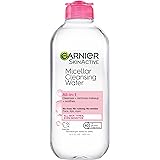The professional registered nurse
has the authority, responsibility, and shift accountability for the delivery
of nursing care through the use of the nursing process. The Registered Nurse
accepts accountability, applies competent clinical knowledge skills, and uses
independent nursing judgment for care provided by self and by health care
providers to who care is delegated to achieve quality patient care outcomes.
The
Registered Nurse must demonstrate the knowledge and skills necessary to
provide care that is relevant to the patient(s) under their care, as well as
apply principles of growth and development over the life span. The Registered
Nurse also must possess the ability to assess and interpret patient data
needed to identify each patient’s requirements relative to his or her
age-specific needs.
MINIMUM QUALIFICATIONS:
EDUCATION,
CERTIFICATION, AND/OR LICENSURE:
1.
Current
West Virginia licensure as a Registered Professional Nurse or a Graduate
Nurse with a current West Virginia temporary practice permit.
2.
The
Graduate nurse must obtain licensure within 60 days of hire (may not be
waived).
3.
Obtain
certification in Basic Life Support within 30 days of hire date.
PREFERRED QUALIFICATIONS:
EDUCATION,
CERTIFICATION, AND/OR LICENSURE:
1.
Bachelors
of Science in Nursing Degree (BSN). OR
2.
Associates of Science in Nursing
Degree (ASN) or Diploma, currently enrolled in a BSN program and BSN
completed
within 5 years of hire.
CORE
DUTIES AND RESPONSIBILITIES: The
statements described here are intended to describe the general nature of work
being performed by people assigned to this position. They are not intended
to be construed as an all-inclusive list of all responsibilities and duties.
Other duties may be assigned.
1.
Performance Dimensions- This position requires an
individual demonstrating the following behaviors in accordance with our
mission, vision, and values for nursing practice:
Care Delivery
Systems- Use of
competent clinical practice and critical thinking skills to efficiently
deliver patient care withal health care providers while maximizing efficient
use of resources.
Leadership- Possesses the interpersonal skills to
positively and effectively communicate, negotiate, and resolve conflict.
Professional
Growth- Motivation
and drive for continuous development of self.
Collaborative
Practice- Cooperatively
interacts with the health care team to support and contribute to the shared
group goals.
2.
Assume
responsibility, display appropriate use of authority and accept
accountability in the delivery of patient care.
3.
Provide
direct patient care within a designated shift, based on the nursing process
and within role/scope of practice.
4.
Implement
appropriate clinical decisions and demonstrate appropriate use of expert
peers and/or management, as applicable.
5.
In response
to data indicating commonly occurring risks to patient health status,
initiate actions to correct, reduce and/or prevent risk.
6.
Provide
coordinated and comprehensive patient care including assessment, expected
outcomes, nursing interventions and evaluation within an interdisciplinary
team approach.
7.
Negotiate the
patient care tasks with family/patient within safe practice guidelines.
Appropriately delegate patient care tasks to assigned personnel; providing
follow-up for completion and patient response.
8.
Accept accountability
and use independent nursing judgment for care provided by self and by health
care providers to who care is delegated.
9.
Demonstrate
the appropriate use of standards, effective use of resources, and evaluation
of patient response in the delivery of patient care.
10.
Use standards
of care and standards of practice to guide care delivery.
11.
Base
decisions made/actions taken on relevant scientific principles, established
standards of care and/or research findings. Seek assistance/credible resource
when unable to perform safely and independently.
12.
Perform
evaluation of patient response to tasks performed and delegated; including
Patient Profile Assessment for safe patient handling and mobility.
13.
Determine/revise
priorities for direct/indirect patient care activities based on patient
acuity and available resources; update to daily care plan to include appropriate
algorithms for safe patient handling.
14.
Use
established patient care support systems including documentation,
communication, & information.
15.
Assume
responsibility for the development of others.
16.
Engage in
mentoring and networking activities to promote professional development.
17.
Foster the
integration of staff and/or students into the health care team. Facilitate
incorporation of the unit’s mission, values, and vision.
18.
Function to
promote trusting relationships and open, honest communication at the unit
level.
19.
Engage in
exchange of information relevant to specific patient assignment.
20.
Interact with
various members of the health care team to meet patient care needs.
21.
Participate
in Performance Improvement activities as appropriate.
PHYSICAL
REQUIREMENTS: The
physical demands described here are representative of those that must be met
by an employee to successfully perform the essential functions of this job.
Reasonable accommodations may be made to enable individuals with disabilities
to perform the essential functions.
1.
The
National Institute for Occupational Safety and Health recommends minimizing
the need for employees to manually lift patients, and limit safe patient
handling to 35 pounds. All transfers, lifts and re-positioning will be
completed utilizing the lift equipment and/or other patient handling aids as
indicated by the patients profile and appropriate algorithms.
2.
Heavy/Hard
work: Work requires
strength and/or stamina, lifting, moving, stooping, reaching, standing,
walking, and carrying of materials and equipment weighing 40+lbs.
WORKING
ENVIRONMENT: The work
environment characteristics described here are representative of those an
employee encounters while performing the essential functions of this job.
Reasonable accommodations may be made to enable individuals with disabilities
to perform the essential functions.
1.
Working closely with others.
2.
Protracted or irregular hours.
3.
Working around biohazards.
4.
Working around infectious diseases.
5.
Working with or near the deceased.
6.
Working with hands in water.
7.
Electrical hazards associated with patient care
equipment.
Source: Indeed.com
Click Here To Apply

